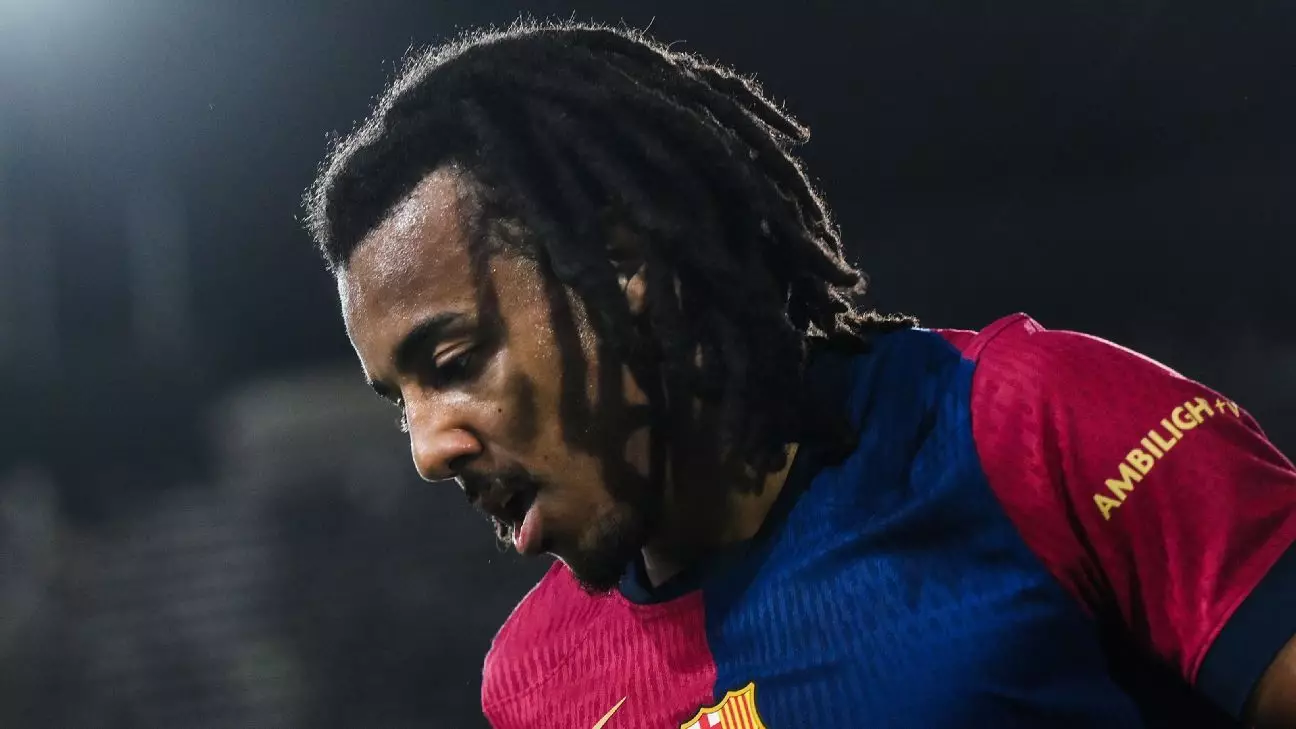The professional sports arena is one governed by a mix of skill, discipline, and camaraderie. Recently, this was exemplified in a high-stakes match where Barcelona’s coach, Hansi Flick, made a bold decision, benching star defender Jules Koundé due to his tardiness for a pre-match meeting. This decision brought to light not only the implications of one player’s behavior but also the underlying principles of discipline that form the backbone of successful teams.
In any professional setting, punctuality is not merely a courtesy; it is a fundamental sign of respect towards one’s team and organization. In the world of sports, where every minute counts, a player’s failure to adhere to these unwritten rules can reverberate through the entire team dynamic. Flick’s choice to sideline Koundé was not just a disciplinary measure; it reflects a broader philosophy concerning accountability and respect. With Koundé missing out on crucial game time for the second occasion this season, one begins to wonder: what message does this send to the rest of the squad?
Flick stated, “It’s not only about me, it’s about respect for the players, the club, the fans.” This sentiment encapsulates the ethos of any thriving sports team, where collective responsibility often translates into collective success. If one player neglects the norms that govern team interactions, it can potentially undermine the morale and coherence expected in high-stakes situations.
Consequences and Reactions
Following his late arrival, Koundé’s stint on the field was limited to the 66th minute of the match against Rayo Vallecano, where Barcelona eventually secured a narrow 1-0 victory courtesy of a penalty by Robert Lewandowski. Flick’s decision reportedly came after a moment of critical reflection; a lesson intended not only for Koundé but as a broader teaching moment for the squad about the importance of discipline.
In his post-match analysis, Flick emphasized the significance of these ‘appointments for players.’ While some observers may argue that individual talent, such as Koundé’s, should supersede such protocols, this line of thinking often leads to a culture lacking accountability. Teams thrive on a foundation of mutual respect, where every member understands and acknowledges the roles they play, both on and off the pitch.
This incident is not isolated. Flick’s strict regimen has seen goalkeeper Iñaki Peña also benched this season for similar infractions. Such patterns indicate a philosophy shift within Barcelona, transitioning from a culture of leniency that may have contributed to their previous challenges, to one that is more stringent and focused on discipline.
Moreover, Barcelona’s current position in LaLiga — now back at the top after a lengthy struggle — serves as a testament to what adhering to such principles can yield. The Catalan outfit has demonstrated resilience, bouncing back from difficulties earlier in the season, while maintaining an impressive unbeaten streak across competitions. However, as Flick noted, rankings can fluctuate rapidly, and it is the continuous commitment to hard work that will ensure sustained success.
As the remainder of the season looms ahead, the key lesson for Koundé — and indeed, the entire squad — is clear. Preparing mentally and physically for each match is as crucial as showcasing talent on the field. In a competitive landscape where every point matters, discipline will no longer be an option; it will be a necessity.
Koundé’s situation serves as a microcosm of broader team dynamics. If Barcelona wishes to maintain its elite status, it must foster an environment that values punctuality and discipline. The upcoming weeks will reveal if this wake-up call translates into a lasting commitment to these principles and whether Koundé can regain his starting position while setting an example for his teammates.
While disciplinary actions may be uncomfortable, they often come hand-in-hand with growth. By adhering to strict guidelines and emphasizing mutual respect, Barcelona may well find itself on the path to consistent success, one punctual player at a time.

